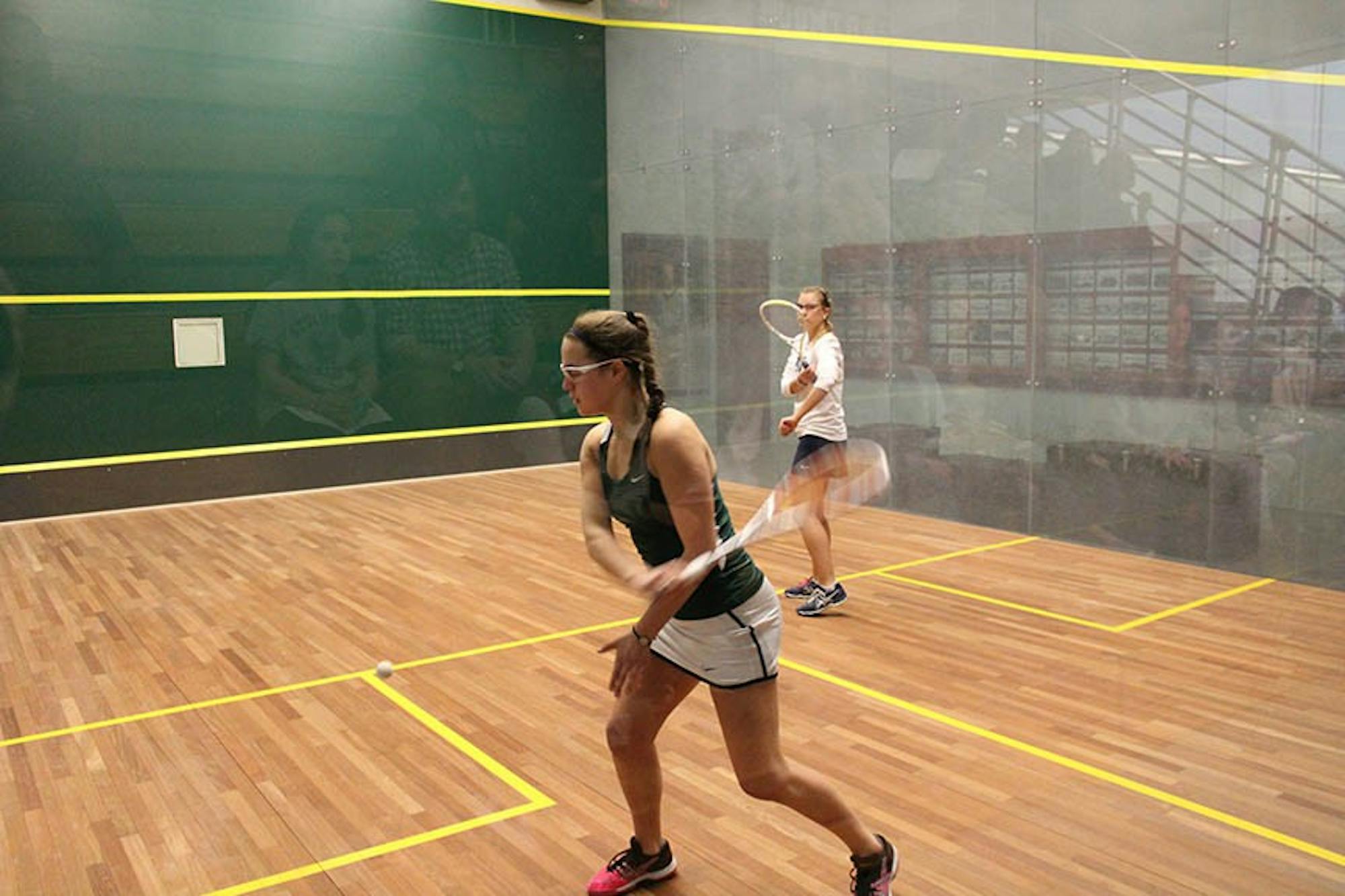With six matches to go before playoffs, the men’s and women’s squash teams reached the midpoint of their seasons this month. Both teams finished their 2016-2017 season in ninth place: a drop for the men who started the season ranked eighth and an improvement for the women who started the season ranked ninth then dipping to 11th for a brief moment in the middle of the season. The college nationals are broken into flights of eight teams. The top eight, the A division, compete for the national championship whereas the other brackets of eight compete for cups or trophies. Each team’s final season ranking is used to determine their initial rank the following season.
Though the goal for the women’s team was to break into the top eight, it is currently sitting in 10th place and is looking at ways it can improve its standing. According to co-captain Zainab Molani ’18, the reason the women have not been able to move up in the rankings is due to the team’s performances against Columbia University and Cornell University. The women lost 6-3 to the Lions and 7-2 to the Big Red. Both teams are ranked above the Big Green.
Currently, the women’s team would have to beat Drexel University and Brown University to stay within the top 10. Molani considers winning those matches perfectly possible but the women need “to keep [their] heads up and work hard” in the coming weeks.
The men are also currently ranked 10th; however, they are confident in their ability to beat some of the schools ranked above them. In terms of strategy for the rest of the season, there are three matches that the men’s team is especially focused on. Drexel, the University of Rochester, and Yale University.
“Those three teams sit ahead of us right now, so winning at least two would give us a great opportunity to make the top eight,” Leyton Johnston ’20 said. “They will all be tough matches for sure, but those are the opportunities we have our eyes on.”
Two other upcoming matches are against the University of Pennsylvania on Feb 3 and Princeton University on Feb 4; however, the men know those teams will be tough matchups.
“[Penn and Princeton] seem to be a bit stronger than the other three,” Johnston said. “But we’ll definitely give it a good go.”
Sean Oen ’20noted that what makes these teams particularly difficult is their depth but also finds that other teams often underestimate the Big Green.
“We get a preseason ranking based on our final position from the season before as well as some subjective input from the college squash association based on their assessment of the incoming freshmen,” Oen said. “We start the season and play our matches and hypothetically move up and down the rankings based on our wins and losses. However, since squash seems to be so variable and there are a lot of teams of similar strength, it makes it hard to determine who should be ranked.”
Similarly, Molani finds that the rankings of teams can seem arbitarily decided, especially when the teams come in tied.
It seems as though the ranking system is a mystery to many players. Oen said that he was not 100 percent sure how the ranking system worked. “There isn’t lots of clarity,” he said. Johnston also had his reservations commenting on the ranking system, saying that it’s hard to explain due to the number of factors and subjectivity that go into the decision.
Oen did say, however, that there is much less emphasis on rankings in squash as opposed to other sports.
“Head-to-head wins seem more important,” he said. “Obviously, it is nice to be able to say that we are ranked a certain number in the country, but it is not a big topic on the team.”




